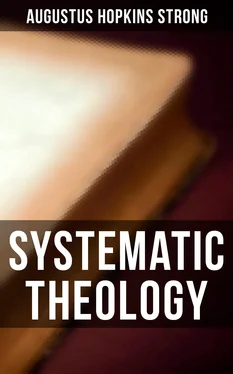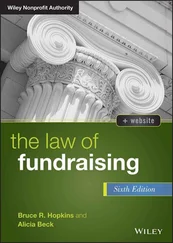When therefore we find in the inspired song of Deborah, the prophetess ( Judges 5:30 ), an allusion to the common spoils of war— “a damsel, two damsels to every man” or in Prov. 31:6, 7—“Give strong drink unto him that is ready to perish, and wine unto the bitter in soul. Let him drink, and forget his poverty, and remember his misery no more” —we do not need to maintain that these passages furnish standards for our modern conduct. Dr. Fisher calls the latter “the worst advice to a person in affliction, or dispirited by the loss of property.” They mark past stages in God's providential leading of mankind. A higher stage indeed is already intimated in Prov. 31:4—“it is not for kings to drink wine, Nor for princes to say, Where is strong drink?” We see that God could use very imperfect instruments and could inspire very imperfect men. Many things were permitted for men's “hardness of heart” (Mat. 19:8) . The Sermon on the Mount is a great advance on the law of Moses ( Mat. 5:21—“Ye have heard that it was said to them of old time” ; cf. 22— “But I say unto you” ).
Robert G. Ingersoll would have lost his stock in trade if Christians had generally recognized that revelation is gradual, and is completed only in Christ. This gradualness of revelation is conceded in the common phrase: “the new dispensation.” Abraham Lincoln showed his wisdom by never going far ahead of the common sense of the people. God similarly adapted his legislation to the capacities of each successive age. The command to Abraham to sacrifice his son ( Gen. 22:1–19 ) was a proper test of Abraham's faith in a day when human sacrifice violated no common ethical standard because the Hebrew, like the Roman, “patria potestas” did not regard the child as having a separate individuality, but included the child in the parent and made the child equally responsible for the parent's sin. But that very command was given only as a test of faith, and with the intent to make the intended obedience the occasion of revealing God's provision of a substitute and so of doing away with human sacrifice for all future time. We may well imitate the gradualness of divine revelation in our treatment of dancing and of the liquor traffic.
(d) God's righteous sovereignty affords the key to other events. He has the right to do what he will with his own, and to punish the transgressor when and where he will; and he may justly make men the foretellers or executors of his purposes.
Foretellers, as in the imprecatory Psalms ( 137:9 ; cf. Is. 13:16–18 and Jer. 50:16, 29 ); executors, as in the destruction of the Canaanites ( Deut. 7:2, 16 ). In the former case the Psalm was not the ebullition of personal anger, but the expression of judicial indignation against the enemies of God. We must distinguish the substance from the form. The substance was the denunciation of God's righteous judgments; the form was taken from the ordinary customs of war in the Psalmist's time. See Park, in Bib. Sac., 1862:165; Cowles, Com. on Ps. 137; Perowne on Psalms, Introd., 61; Presb. and Ref. Rev., 1897:490–505; cf. 2 Tim. 4:14—“the Lord will render to him according to his works” —a prophecy, not a curse, ἀποδώσει, not ἀποδώη, as in A. V. In the latter case, an exterminating war was only the benevolent surgery that amputated the putrid limb, and so saved the religious life of the Hebrew nation and of the after-world. See Dr. Thomas Arnold, Essay on the Right Interpretation of Scripture; Fisher, Beginnings of Christianity, 11–24.
Another interpretation of these events has been proposed, which would make them illustrations of the principle indicated in (c) above: E. G. Robinson, Christian Theology, 45—“It was not the imprecations of the Psalm that were inspired of God, but his purposes and ideas of which these were by the times the necessary vehicle; just as the adultery of David was not by divine command, though through it the purpose of God as to Christ's descent was accomplished.” John Watson (Ian Maclaren), Cure of Souls, 143—“When the massacre of the Canaanites and certain proceedings of David are flung in the face of Christians, it is no longer necessary to fall back on evasions or special pleading. It can now be frankly admitted that, from our standpoint in this year of grace, such deeds were atrocious, and that they never could have been according to the mind of God, but that they must be judged by their date, and considered the defects of elementary moral processes. The Bible is vindicated, because it is, on the whole, a steady ascent, and because it culminates in Christ.”
Lyman Abbott, Theology of an Evolutionist, 56—“Abraham mistook the voice of conscience, calling on him to consecrate his only son to God, and interpreted it as a command to slay his son as a burnt offering. Israel misinterpreted his righteous indignation at the cruel and lustful rites of the Canaanitish religion as a divine summons to destroy the worship by putting the worshipers to death; a people undeveloped in moral judgment could not distinguish between formal regulations respecting camp-life and eternal principles of righteousness, such as, Thou shalt love thy neighbor as thyself, but embodied them in the same code, and seemed to regard them as of equal authority.”Wilkinson, Epic of Paul, 281—“If so be such man, so placed … did in some part That utterance make his own, profaning it, To be his vehicle for sense not meant By the august supreme inspiring Will”—i.e., putting some of his own sinful anger into God's calm predictions of judgment. Compare the stern last words of “Zechariah, the son of Jehoiada, the priest” when stoned to death in the temple court: “Jehovah look upon it and require it”(2 Chron. 24:20–22) , with the last words of Jesus: “Father, forgive them, for they know not what they do”(Luke 23:34) and of Stephen: “Lord, lay not this sin to their charge” (Acts 7:60) .
(e) Other apparent immoralities are due to unwarranted interpretations. Symbol is sometimes taken for literal fact; the language of irony is understood as sober affirmation; the glow and freedom of Oriental description are judged by the unimpassioned style of Western literature; appeal to lower motives is taken to exclude, instead of preparing for, the higher.
In Hosea 1:2, 3 , the command to the prophet to marry a harlot was probably received and executed in vision, and was intended only as symbolic: compare Jer. 25:15–18—“Take this cup … and cause all the nations … to drink.” Literal obedience would have made the prophet contemptible to those whom he would instruct, and would require so long a time as to weaken, if not destroy, the designed effect; see Ann. Par. Bible, in loco. In 2 K. 6:19 , Elisha's deception, so called, was probably only ironical and benevolent; the enemy dared not resist, because they were completely in his power. In the Song of Solomon , we have, as Jewish writers have always held, a highly-wrought dramatic description of the union between Jehovah and his people, which we must judge by Eastern and not by Western literary standards.
Francis W. Newman, in his Phases of Faith, accused even the New Testament of presenting low motives for human obedience. It is true that all right motives are appealed to, and some of these motives are of a higher sort than are others. Hope of heaven and fear of hell are not the highest motives, but they may be employed as preliminary incitements to action, even though only love for God and for holiness will ensure salvation. Such motives are urged both by Christ and by his apostles: Mat. 6:20—“lay up for yourselves treasures in heaven” ; 10:28—“fear him who is able to destroy both soul and body in hell” ; Jude 23—“some save with fear, snatching them out of the fire.” In this respect the N. T. does not differ from the O. T. George Adam Smith has pointed out that the royalists got their texts, “the powers that be” (Rom. 13:1) and “the king as supreme” (1 Pet. 2:13) , from the N. T., while the O. T. furnished texts for the defenders of liberty. While the O. T. deals with national life, and the discharge of social and political functions, the N. T. deals in the main with individuals and with their relations to God. On the whole subject, see Hessey, Moral Difficulties of the Bible; Jellett, Moral Difficulties of the O. T.; Faith and Free Thought (Lect. by Christ. Ev. Soc.), 2:173; Rogers, Eclipse of Faith; Butler, Analogy, part ii, chap. iii; Orr, Problem of the O. T., 465–483.
Читать дальше












